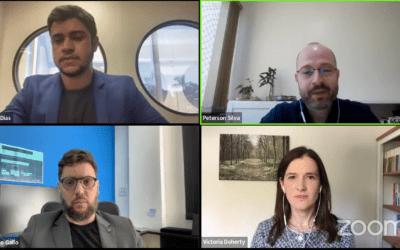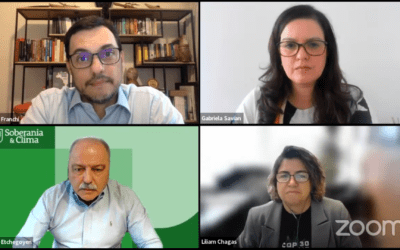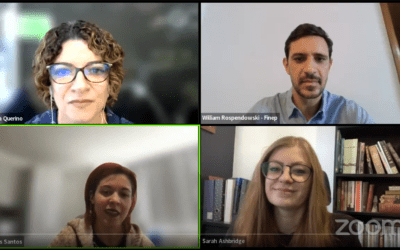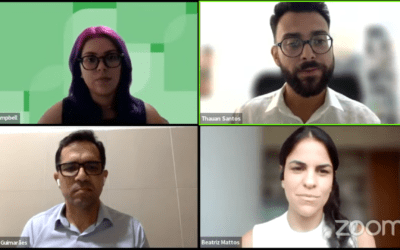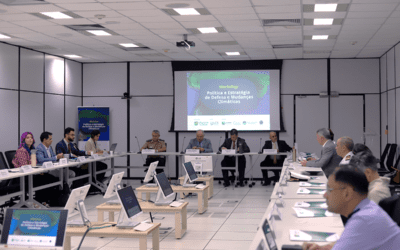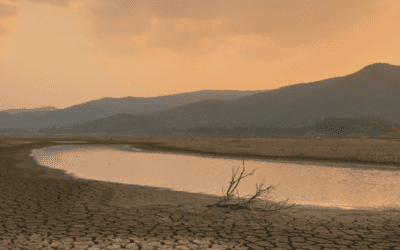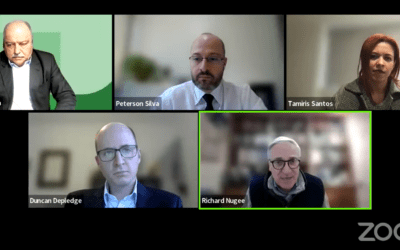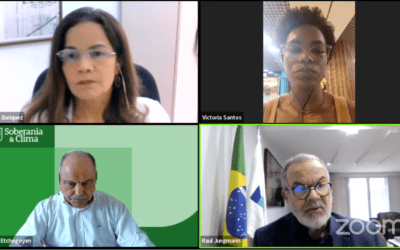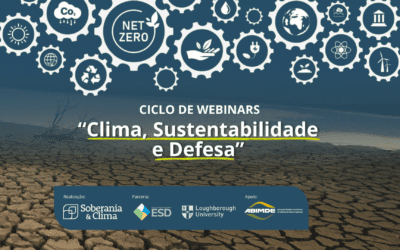In the 1st Webinar in partnership with the National Endowment for Democracy (NED), the Sovereignty and Climate Center discusses the relationship between climate change and food security in Brazil.
The Food and Agriculture Organization of the United Nations (FAO) estimates that population growth and changes in diets around the world will affect the demand for food in the coming decades. With a 60% increase in the demand predicted for 2050, it is insufficient to imagine that only an increase in food supply would be the adequate solution to overcome this challenge. Facing the current climate and food crises, productive sustainability and the distribution and access to adequate food, in the necessary quantity, quality and time, are also central elements in the debate on food security.
According to FAO, “Food security exists when all people, at all times, have physical and economic access to sufficient, safe and nutritious food that meets their dietary needs and preferences for an active and healthy life”. Fighting hunger and malnutrition is now one of the main points among the Sustainable Development Goals (SDGs) of the 2030 Agenda, with the ambition to eradicate hunger in the world in the coming years.
However, climate change is one of the main obstacles to achieve this goal. According to the Intergovernmental Panel on Climate Change (IPCC), climate change increases and intensifies risks to food security, especially for the most vulnerable populations and countries. Among the risks triggered, four of them have a direct impact on food security: the loss of rural livelihoods and income, loss of marine and coastal ecosystems, loss of terrestrial and aquatic ecosystems, and the collapse of food systems. Food insecurity is also compounded by other vulnerabilities generated by climate change, such as soil degradation, water scarcity, and pollution. In addition to these direct consequences, climate change also has profound impacts on trade flows, food markets, price stability and can introduce new risks to human health.
In Brazil, food insecurity has reached worrying levels. According to research carried out by FGV Social, in 2021, 36% of Brazilians were in a situation of food insecurity, a rate four times higher than the average of the other 120 countries analyzed. The data become even more alarming when analyzed by gender and class. In terms of gender, in 2021, the rate of food insecurity among women is 47%, while that among men is 26%. Regarding class standpoint, among the 20% poorest in the country, the level reached 75% in 2021, a rate comparable to countries like Zimbabwe, the worst in the ranking.
So, how can Brazil guarantee its food security in a context of climate change? How to adapt and build resilient systems needed to safeguard food systems? How to ensure the sustainability of production processes? How to fight inequalities in the distribution and access to food?
The Webinar «Climate change and food security in Brazil» discusses these and other issues with experts from different areas:
- Sergio Etchegoyen, Reserve Army General and Chairman of the Board and co-founder of the Sovereignty and Climate Center
- Ambassador Leonardo Cleaver de Athayde, Director of the Department of Sustainable Development at the Ministry of Foreign Affairs
- Elisabetta Recine, former President of the National Council for Food and Nutrition Security
- Maureen Santos, Professor at the Institute of International Relations at PUC-Rio

